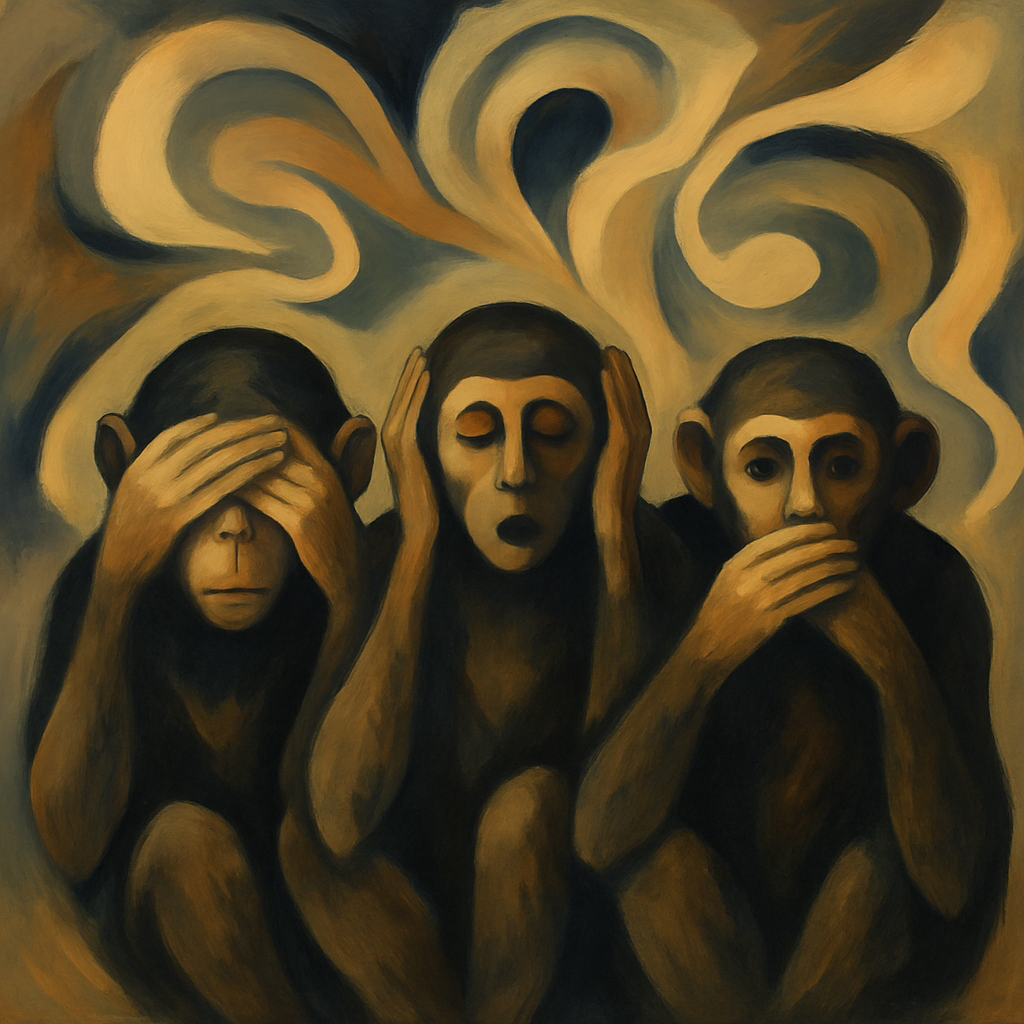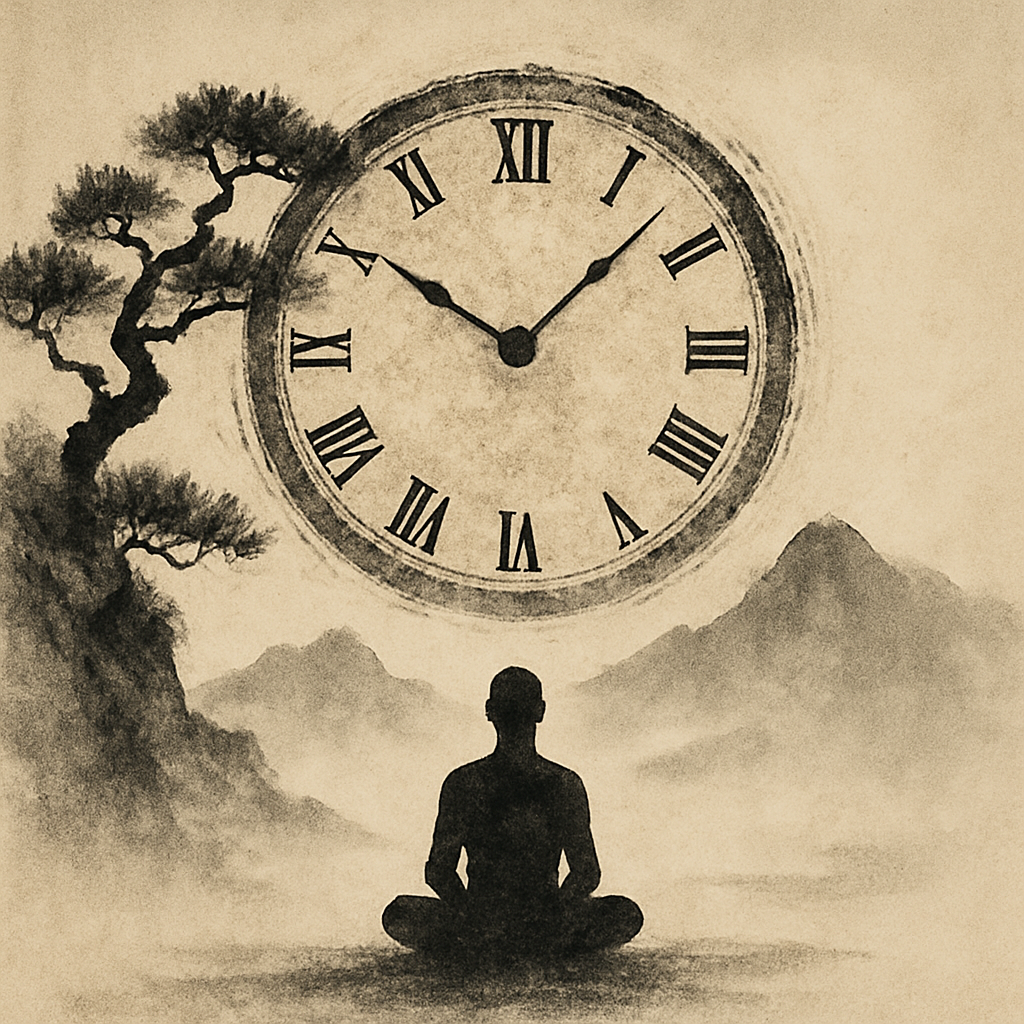The Anatomy of Not Moving from Knowledge to Action
As usual, before I go deeper into the subject, I would like to start with a simple situation that I think we have all been through.
This time we say we are definitely going to start exercising, and we really do, because we are determined. But we have an excuse (a meeting comes up, someone has a birthday, etc.) and we can't go to the gym that day. Some time passes and we realize that we have stopped going to the gym altogether.
Well, if this happens to all of us, it must be a universal conflict, right?
In fact, it really is.
But can't we do something to overcome it?
Let's examine it together.
In this article, we will discuss from philosophical and scientific perspectives why we have difficulty in practicing what we rationally consider to be right; the source and consequences of mental resistance and what can be done to overcome it.
Philosophical and Scientific Background
Philosophical Background
Akrasia and the Problem of Will
Aristotle, In The Ethics of Nicomacheus he describes how emotions and desires override reason, a concept he calls "akrasia".
Akrasia, according to him, is the inability to do the right thing even when one knows what one ought to do.
It is usually translated into Turkish as "weakness of will" or "lack of self-control".
There are two cases here:
First, a person who is deliberately wrong (malicious).
Second, a person who is in a state of akrasia, that is, a person who knows what is right but is guided by his passions and desires, who is indecisive or weak-willed. This person is not malicious; it is just that his will remains weak.
While the expression "weak will" may seem harsh, Aristotle's aim is to understand this fragility of human nature.
Aristotle suggests the following solutions:
Gaining virtuous habits (ethos):
It is necessary to take a virtuous stance, to stand by our decisions even when they are difficult, and to make this stance a habit that we will follow without thinking.
Developing practical reason (phronesis):
Theoretically, it is not enough to know a piece of knowledge. The important thing is to manage when and how to put that knowledge into practice with our reason.
Finding balance (mesotes):
It is necessary to avoid extremes and to strike a balance between desires and reason. For a truly virtuous life, an inner discipline that achieves this balance is essential.
Stoicism and Inner Consistency
A virtuous life, according to Stoicism, is possible by living in accordance with nature. However, "nature" here includes not only biological nature, but also human reason.
Stoicists argue that it is essential to live consistently under the guidance of reason.
According to them:
Intention:
Inner decisions guided by reason, aiming to be virtuous.
Action:
Behavior reflected in the external world.
Internal consistency is the disappearance of the difference between intention and action.
At this point, I find it useful to reflect a little on Marcus Aurelius' inspiring sentence:
If you know what is right and do not do it, you betray yourself.
Self-alienation
Self-alienation is the weakening of the connection with one's inner world, values and potential. The individual no longer recognizes himself/herself; he/she no longer knows why he/she does what he/she does and starts to live according to the expectations of others or the motivation of habits.
In philosophy, this concept is prominent among the Stoics and existentialists.
According to the Stoics:
Whenever one does not live in accordance with one's nature, that is, when one is not guided by reason and virtue, one becomes alienated from oneself.
According to Sartre:
Whenever one avoids free choice, one becomes estranged from one's authentic self.
This state of alienation is the root cause of the gap between intention and action. One wants one thing but does something else because one is no longer "the one who wants" and has become detached from one's own self.
Scientific Background
Automatic and Conscious Systems of the Brain
Nobel Prize-winning psychologist Daniel Kahneman describes the human mind in terms of two basic systems:
System 1:
It is fast, intuitive, automatic and effortless thinking.
System 2:
Slow, analytical, conscious and effortful thinking.
System 1 governs our habits, while System 2 governs conscious will and analytical thinking.
Much of our daily life is governed by System 1, which works through our habits.
This system makes quick decisions, such as seeing a dish and suddenly wanting to eat it, reacting impulsively on social media, or snoozing the alarm for the next morning without even thinking about it...
Each of these are automatic responses of System 1.
When System 2 kicks in, it provides an internal brake. It is the part that asks questions like "Do I really need to eat this?", "What will be the long-term consequence of this decision?" and guides us towards a more conscious action.
But System 2 takes energy and effort to function. That's why we often don't let it kick in.
Neuroscience Perspective: The Habit Loop and the Mental Battlefield
Our brain is the scene of a constant conflict between two main systems that govern our behavior:
- Limbic system (emotional brain)
- Prefrontal cortex (logical, planning brain)
1. The Habit Loop
When a behavior becomes a habit, the brain now automates it. This process works in a three-stage cycle:
- Cue: A trigger (clock, smell, emotion)
- Behavior: Automatic response
- Reward: The brain receives pleasure
This cycle is controlled by the limbic system. Structures such as the basal ganglia in particular recognize repetitive behaviors and activate them without conscious thought. This is why bad habits are repeated over and over again "unknowingly".
2. Limbic System vs. Prefrontal Cortex
The limbic system is pleasure-oriented. It drives us with urges for immediate gratification and emotional release.
The prefrontal cortex
is the brain region that makes long-term plans, exercises judgment and has the ability to procrastinate. This is the system that can say "I don't want it now, but it will be better if I do it later".
This is where the conflict of wills occurs:
Limbic system:
"Let's not be happy at all, just eat that dessert",
Prefrontal cortex:
"Don't listen to that maniac, it's better to be healthy, never mind eating".
Every time this conflict recurs, the winning side determines our habits or self-discipline.
Neuroscience shows us this: The more consciously we repeat a behavior, the more the prefrontal cortex is engaged and, over time, this new behavior becomes embedded in the limbic system and becomes a new habit.
Psychological Background
Cognitive Dissonance, Procrastination and Motivational Barriers
Cognitive Dissonance
When an individual exhibits a behavior that conflicts with his or her values, he or she experiences a mental uneasiness.
For example, someone who decides to live a healthy lifestyle and then eats junk food late at night feels inwardly that he is "betraying himself". This contradiction is called cognitive dissonance.
In order to resolve this dissonance, the mind either changes the behavior or makes excuses for itself:
"I'm already stressed out, one time won't hurt me."
At this point, the individual either remains honest with himself/herself (maintaining internal consistency) or avoids confronting his/her defense mechanisms.
Procrastination
Procrastination is one of the most common manifestations of cognitive dissonance. By not doing something "now" that one wants to do, one postpones it until future. This is because:
- Habitual behaviors seek quick gratification and avoid tasks that require effort.
- The limbic system wants to avoid tasks that cause discomfort.
- The "should do" voice of the prefrontal cortex is silenced by both of these.
In this situation, the individual knows in his/her heart what he/she should do but cannot act. This is another form of internal conflict.
Motivational Barriers
Lack of motivation is often caused not by laziness, but by uncertainty, fear or a sense of worthlessness.
The individual should realize that he or she does not have the energy to do a task, but that he or she needs to postpone it because he or she cannot make sense of it.
Some of the obstacles are:
- Fear of what if I fail (perfectionism)
- Why am I doing it (meaninglessness)
- It's already too late (hopelessness)
A person who constantly depends on external factors for motivation loses his/her inner voice and becomes distant from his/her true self. This is another face of self-alienation.
Real Problem and Solution Suggestions
Problem:
I call the human body system a machine. The primary problem is that we don't really know the machine.
There is a subject that I try to bring up to my friends at every gathering, and I have even touched on it in previous articles:
Just as the universe is in a continuous cycle (the cycle of day and night, the cycle of the alignment of the planets), human beings are also part of this cycle, whether they want to be or not.
We sleep at night, wake up in the morning, eat, drink, defecate.
This cycle doesn't stop there.
We said machine at the beginning; this machine runs on fuel (food, water) and in order to work at maximum efficiency, a system is in operation that unthinkingly activates our every cyclic behavior by reducing consciousness as much as possible.
This system, whose sole purpose is to maintain the cycle, is not interested in whether we are happy or unhappy, healthy or unhealthy, existing or disappearing. To the extent that we cannot control our cyclical behavior, it leads us to live lives of repetition without our will, without our awareness.
Solutions:
Knowing that I am not tired of repetition, I think we need to pay attention to stoic rituals again. Our first concern should be to honestly look at every event we experience and say, "Is this event within our control or not?"
Because if we can do that, we can reorganize all the cycles that make us feel bad, that we like or don't like, and that are within our control in the way we want.
Let's look at what can be done scientifically:
The scientific world has been studying the power of habits for a long time. We know that as the brain repeats a behavior, it creates a "pathway" for that behavior, almost like we are on autopilot. So it's not something that can happen in a day, whether it's to form a new habit or to break an old one.
But it's not impossible either. From a scientific point of view, the following methods can be tried:
Microsteps:
Starting with small, achievable goals prevents the brain from resisting big changes.
For example, instead of reading a book for 30 minutes every day, say "I will read just one page every evening" and consider yourself successful when you actually read one page. Over time, these small successes trigger each other and the habit becomes entrenched.
Breaking the habit chain:
First of all, you need to recognize the moment or the environment that triggered the habit. If you are a smoker, observe when and where you reach for a cigarette the most. At that trigger moment, try to introduce another behavior: a short walk, a drink of water, a deep breath.
Shrinking the goal:
This is another way to make change achievable. When faced with big goals, the brain either wants "immediate results" or it gives up altogether. Therefore, breaking the big picture into small pieces makes the process sustainable.
As a result, the bigger the change becomes, the harder it is to start.
Science tells us: Start small, repeat regularly, treat yourself with compassion.
Because breaking a habit or adopting a new one is not a test of willpower; it is a systematic and patient journey.
I know that researching, learning and writing it down is not the same as practicing it. I have not been as good at sports as I would like to be; but when I observe myself, I see that I follow these paths strictly and I can usually keep my habit cycles under my control.
I think the best example is these articles.
I have always thought about writing a book, scribbling something...
I always have an excuse, I put it off.
About 10 weeks ago, I decided to break this cycle. I decided to write these articles every week with the intention that maybe one day I could turn them into a book.
I repeated this decision every week without fail.
I know, micro steps and goal reduction...
But if we can't solve big problems all at once, I think the best thing we can do is to divide them into small problems that can be solved and solve them step by step by taking our habit cycle under control.
Conclusion and Message to the Reader
The inability to put knowledge into practice is not only a matter of willpower, but also a result of human nature and our brain structure pushing us in that direction by default.
What we can do is to be aware and accept the things that are out of our control as they are, without attaching any emotion to them; the things that are in our control we can aim to keep in place if they are positive and change if they are negative.
Life is already a struggle in itself; at least the things we can control are really under our control.
This way, life is shaped from being "something that happens to us" to being "something we build".
Where do you most often get lost between knowledge and action? What do you think is the real obstacle?
Next week, we'll talk about why it's hard to stay in the 'now' as we are torn between the past and the future.
Till then, stay in love.





